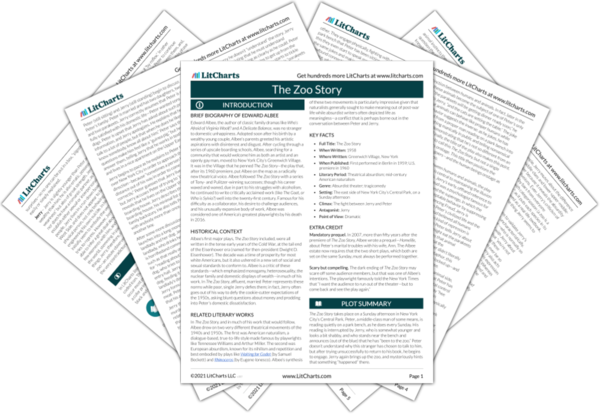The whole play has been driven by the mystery of what happened at the zoo, which was implied to be so strange and momentous that it would be in the newspapers. But as it turns out, the “event” at the zoo was simply a decision; Jerry decided to find someone he could really get to know, which he did when he found Peter. On some level, though, Jerry knew that this would end in violence—and even in his own death—as
this is what makes the day newsworthy. It’s hard to know how to interpret Jerry’s quasi-planning of his own death. Perhaps he felt that life was not worth living after the dog taught him that he could not connect with others, or perhaps he felt that the extreme event of impaling himself was the only way that he and Peter could make a connection. As Jerry is comfortable with ambiguity and contradiction, perhaps he believed both things at once. When Jerry begins to describe his relationship with Peter, he uses Biblical language (“you have comforted me” is a paraphrase of the New Testament verse Isaiah 12:1), which emphasizes the play’s sense that spirituality and irrationality might be the only way to grapple with the complexity of human life.
